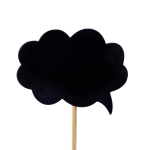Replace tired language with metaphor

Why avoid clichés in writing? |
|

|
Avoid clichés by using metaphor Replace dead language with vibrant figures of speech Get your ducks in a row: Or better yet, don’t. Because that’s a tired, worn-out cliché. |
|
|
|

|
Don’t let zombies eat your readers’ brains Zombie attack! Don’t fill your message with dead1 and dead2 metaphors. |
|
|
|

|
What’s in a buzzword? Nothing. If you’re writing about vertically integrated digital-media companies, stop typing What’s the buzz? Take a buzz saw to corporate buzzwords. |
How to avoid clichés in writing |
|

|
How to avoid cliché in writing Shift imagery to refresh your metaphor Shift imagery: Because sports, war and car images are so — yawn! — overdone. |
|
|
|

|
How to resurrect a dead metaphor Revive or reimagine a cliché Breathe new life into a tired cliché by extending or otherwise playing with it. |
|
|
|

|
How to avoid clichés in your messages Turn hackneyed phrases into fresh, exciting metaphors Don’t let readers burn out on your message: Search and destroy lifeless clichés. |
More on how to avoid clichés in writing |
|

|
Best resources on cliché, metaphors Websites, books and tools Learn more tricks for replacing clichés with analogies. |
|
|
|

|
Quotes on writing clichéd metaphors What writers & others say “Strike (clichés) from your writing and choose fresh language and images — it’s the difference between heating up a TV dinner and levitating your pasta with magic mushrooms.”— Cathy Copley, et. al., editors, The Writer’s Complex Style Seminar |